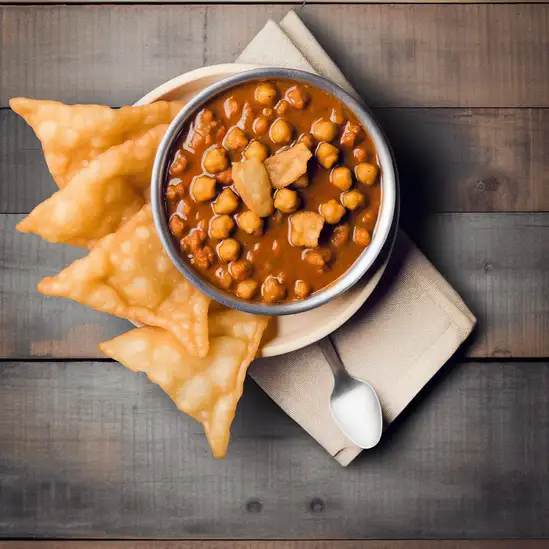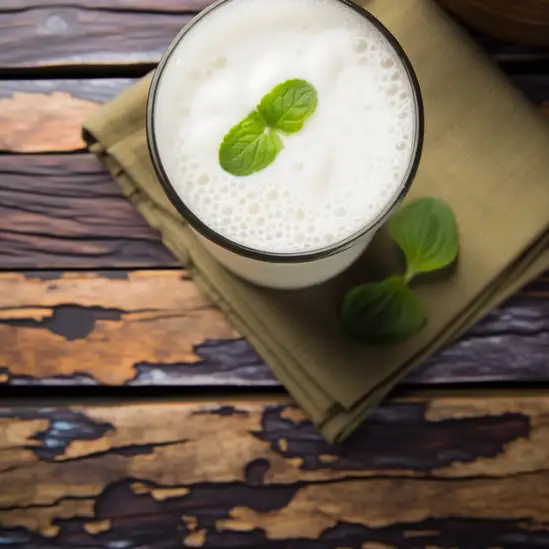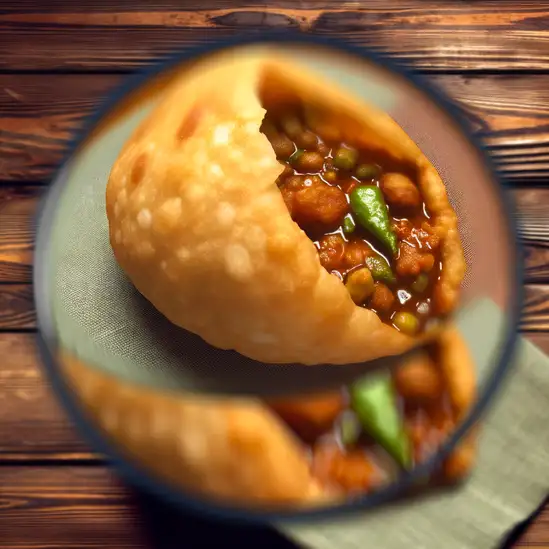



If you ever find yourself craving a place where history hums softly through the streets and spirituality feels like a tangible presence,Ujjain is where you want to be. The moment you step into this ancient city,there’s a gentle rhythm to life here—like the slow,steady beat of a drum echoing from the ghats along the Shipra River. Early mornings are magical,with the mist rising off the water and the scent of incense mingling with the earthy aroma of wet stone. You’ll hear temple bells ringing,mingling with the murmur of prayers and the splash of pilgrims taking ritual baths. Ujjain’s character is deeply rooted in its spiritual heritage,but it’s far from solemn. The city pulses with vibrant festivals,especially the grand Kumbh Mela,where millions gather,creating a sea of color and devotion. Wander through narrow lanes lined with stalls selling fragrant spices,fresh sweets like jalebi dripping with syrup,and chai that’s both sweet and spicy enough to warm your soul. The locals are warm and welcoming,often eager to share stories about the city’s legendary past and its role as one of the seven sacred cities in Hindu tradition. What makes Ujjain truly unique is how it balances the sacred and the everyday. You’ll see sadhus meditating beside bustling markets,ancient temples standing shoulder to shoulder with lively street vendors,and the sun setting behind the Mahakaleshwar Temple,casting a golden glow that feels almost otherworldly. Visiting Ujjain isn’t just a trip; it’s stepping into a living tapestry of faith,history,and everyday magic.
The information on this page is currently being reviewed by Tripkliq and should be used as a guide only
Eng word: Hello
Eng pronunciation: Namaste
Local language: नमस्ते
Eng word: Goodbye
Eng pronunciation: Alvida
Local language: अलविदा
Eng word: Thank you
Eng pronunciation: Dhanyavaad
Local language: धन्यवाद
Eng word: How much
Eng pronunciation: Kitna
Local language: कितना
Eng word: Toilet
Eng pronunciation: Shauchalay
Local language: शौचालय
Eng word: Help me
Eng pronunciation: Meri madad karo
Local language: मेरी मदद करो
Eng word: Yes
Eng pronunciation: Haan
Local language: हाँ
Eng word: No
Eng pronunciation: Nahi
Local language: नहीं
Eng word: Excuse me
Eng pronunciation: Maaf kijiye
Local language: माफ़ कीजिये
Ujjain is one of the oldest cities in India, with its history dating back to the 6th century BCE. It was known as Ujjayini in ancient times and has been a significant cultural and political center.
Ujjain served as the capital of the ancient kingdom of Avanti. It was a major hub for trade and commerce, connecting various parts of India.
The city is home to the Mahakaleshwar Jyotirlinga, one of the twelve sacred Jyotirlingas dedicated to Lord Shiva. This temple attracts millions of devotees every year.
Ujjain is one of the four cities where the Kumbh Mela, the largest religious gathering in the world, is held every 12 years. The event draws millions of pilgrims from around the globe.
Established in 1957, Vikram University is named after the legendary King Vikramaditya, who is believed to have ruled Ujjain. The university is a center for higher education and research.
The great Sanskrit poet and playwright Kalidasa is believed to have lived in Ujjain. His works, such as 'Meghaduta' and 'Shakuntala,' are considered literary masterpieces.
Ujjain has been an important center for astronomy and astrology. The ancient observatory, Jantar Mantar, built by Maharaja Jai Singh II, is a testament to the city's astronomical heritage.
The Harsiddhi Temple is one of the 51 Shakti Peethas and is dedicated to Goddess Harsiddhi. The temple is known for its unique architecture and spiritual significance.
Ram Ghat is one of the most famous ghats in Ujjain, located on the banks of the Shipra River. It is a popular spot for pilgrims to take a holy dip, especially during the Kumbh Mela.
In Ujjain, the most common Power Adaptor is Type C, Type D, Type M.







A popular North Indian dish featuring spicy chickpeas served with deep-fried bread, known as bhature.

A refreshing yogurt-based drink, often flavored with fruits or spices, perfect for cooling down in the hot weather.

A deep-fried pastry filled with a spicy mixture of lentils or peas, often served with chutney.

A savory dish made from grated corn cooked with spices, often garnished with fresh coriander and served hot.

A popular fasting dish made from tapioca pearls, cooked with peanuts, potatoes, and spices, often enjoyed during religious festivals.

Flattened rice cooked with onions, mustard seeds, and turmeric, typically served with a sprinkle of sev and fresh coriander.

A traditional dish consisting of wheat dough balls that are boiled and then baked, served with a rich lentil curry and ghee.

A sweet dessert made from grated carrots, cooked with milk, sugar, and ghee, often garnished with nuts.
Imagine stepping into a city that pulses with energy,where every street corner hums with life and stories waiting to be discovered—that’s Mumbai for you. The moment you arrive,you’re wrapped in a vibrant tapestry of sounds:the rhythmic clatter of local trains,the lively chatter of street vendors,and the distant call of temple bells blending with honking rickshaws. The air carries a mix of spices from roadside stalls,mingling with the salty breeze from the Arabian Sea,creating an intoxicating scent that’s uniquely Mumbai.
Walking through its bustling lanes,you’ll see a kaleidoscope of colors—bright saris fluttering in the wind,intricate colonial architecture standing proudly beside sleek skyscrapers,and street art that tells tales of the city’s soul. Mumbai’s character is a beautiful contradiction:it’s fast-paced yet welcoming,chaotic yet deeply rooted in tradition. The city’s heartbeat is its people—dreamers,artists,and entrepreneurs who wear their resilience and warmth like a badge of honor.
And then there’s the food—oh,the food! From the tangy,spicy street-side vada pav that feels like a warm hug,to the rich,aromatic biryanis and fresh seafood by the sea,every bite is a celebration of flavors. Mumbai invites you to lose yourself in its maze of neighborhoods,each with its own rhythm and charm,promising moments of surprise and connection. It’s not just a place to visit; it’s a city that stays with you long after you’ve left.
Imagine stepping into a place where the sun kisses your skin,the salty breeze carries the laughter of beachside chatter,and every corner hums with a laid-back yet vibrant energy—that’s North Goa for you. It’s a lively patchwork of golden sands,swaying palms,and colorful shacks where the aroma of sizzling seafood mingles with the faint scent of frangipani flowers. Whether you’re wandering through the bustling markets of Anjuna or watching the sun dip behind the waves at Calangute,there’s a rhythm here that feels both timeless and alive.
What really makes North Goa special is its blend of cultures and carefree spirit. You’ll find Portuguese-influenced architecture standing proudly alongside lively street art,while the music—from mellow acoustic sets to pulsing electronic beats—drifts through the air,inviting you to join in. The locals,warm and welcoming,add a genuine charm that makes you feel like you’re part of a big,sun-soaked family.
And the flavors! Freshly caught fish grilled with spices that tease your taste buds,tangy Goan curries,and sweet,creamy feni that’s perfect for toasting to new adventures. As night falls,the beach transforms into a playground of bonfires and music,where stories flow as freely as the ocean breeze. North Goa isn’t just a destination; it’s a feeling—a place that stays with you long after you’ve left.
A historic port city in Kerala,Kochi is famous for its backwaters,Fort Kochi,and nearby islands like Vypin and Willingdon,offering a blend of natural beauty and cultural heritage.
ExploreIf you ever find yourself craving a place where the ocean breeze carries stories of adventure and the rhythm of waves sets your pace,Port Blair is where you want to be. This city feels like a gentle invitation to slow down and soak in the raw beauty of island life. The moment you step off the ferry or plane,the salty air mingled with the scent of tropical flowers wraps around you like a warm hug. Palm trees sway lazily against a backdrop of turquoise waters,and the chatter of locals blends with the distant call of seabirds,creating a soundtrack that’s both lively and soothing.
Port Blair isn’t just a gateway to the Andaman Islands; it’s a place where history whispers through the walls of the Cellular Jail,a somber yet inspiring reminder of India’s past. But beyond its historical weight,the city pulses with a laid-back charm—colorful markets burst with fresh seafood,exotic fruits,and spices that tease your senses. Grab a plate of freshly caught fish grilled with local herbs,and you’ll taste the ocean’s essence in every bite.
What makes Port Blair truly special is its blend of cultures and the warmth of its people. You’ll find a mix of indigenous traditions and influences from across India,all coexisting in a relaxed,welcoming vibe. Whether you’re wandering along Corbyn’s Cove Beach at sunset or chatting with fishermen mending their nets,there’s a genuine friendliness here that makes you feel like you belong. It’s a place that invites you to explore,reflect,and simply be.
A charming coastal city with French colonial architecture,Pondicherry offers access to nearby islands and tranquil beaches,making it a unique blend of culture and relaxation.
ExploreFamous for its houseboat cruises and the serene Vembanad Lake,Alleppey is a gateway to the Kerala backwaters and nearby islands,offering a peaceful retreat amidst nature.
ExploreScammers may ask tourists for donations for fake charities or temple maintenance, claiming the money is for a good cause.
Scammers may pose as hotel agents and offer fake bookings or substandard accommodations at inflated prices.
Some individuals may offer blessings or tie sacred threads, then demand money in return, often pressuring tourists to pay a high amount.
Some individuals posing as priests may approach tourists at temples, especially at the Mahakaleshwar Temple, and insist on performing unnecessary rituals or pujas for exorbitant fees.
Unlicensed or fake guides may offer their services, providing inaccurate information or charging high fees for basic tours.
Vendors near temples may sell prasad (offerings) or religious items at inflated prices, targeting tourists unfamiliar with the actual costs.
Photographers near tourist spots may offer to take pictures and later charge exorbitant rates for the prints or digital copies.
In crowded areas like temples or markets, pickpockets may use distractions to steal wallets, phones, or other valuables.
Auto-rickshaw drivers or taxi operators may overcharge tourists, especially those unfamiliar with local rates or distances.
The use, possession, and trafficking of drugs are strictly prohibited in Ujjain and throughout India under the Narcotic Drugs and Psychotropic Substances (NDPS) Act of 1985. Penalties for drug-related offenses are severe and can include long prison sentences and heavy fines. Tourists should avoid any involvement with illegal drugs to avoid serious legal repercussions.
In Ujjain, as in the rest of India, smoking is prohibited in public places such as hospitals, educational institutions, public transport, and restaurants. The Cigarettes and Other Tobacco Products Act (COTPA) of 2003 regulates smoking in public places. Violators can be fined. Designated smoking areas may be available in some establishments, but it is always best to ask before lighting up.
Vaping is subject to strict regulations in India. The Indian government banned the production, import, sale, and advertisement of e-cigarettes and vaping products in 2019. Tourists should avoid bringing vaping devices and e-liquids into the country, as they may be confiscated, and violators could face legal consequences.
What are other people saying about Ujjain?
Recent Social posts about Ujjain
There is nothing to show you for now.